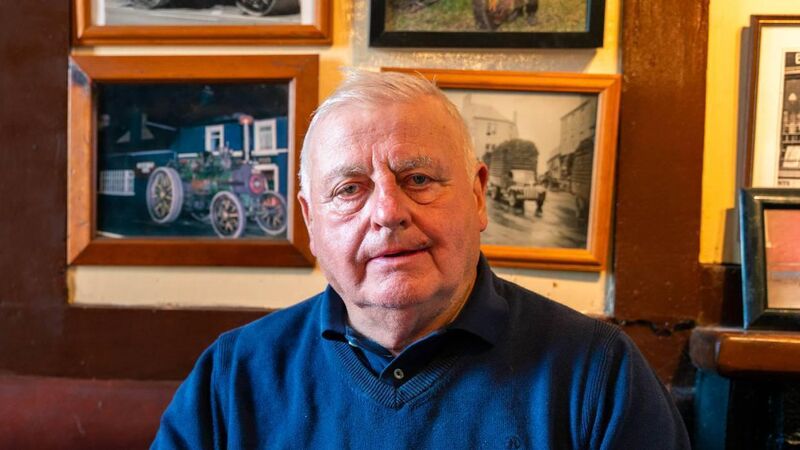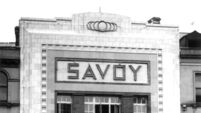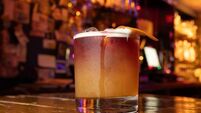John Dolan: Farewell Irish pub culture, we live in the coffee shop age now

Here, you will see that the main road hub which once composed of two thriving pubs - which famously formed the start and end point for the shortest St Patrick’s Day parade in the world at one time - has now become one.
The Weigh Inn remains open, but The Lee Valley Inn has been consigned to rubble in recent weeks, having served its last pint way back in 2007.
Just another pub in Cork to call last orders - and one of 2,000 to have shut nationwide in the last 20 years.
However, all is not lost for the local hospitality trade - far from it.
From Dripsey, head a few miles on the main road towards the city, and you will see the recently-opened Boathouse on the site of the former Griffins Garden Centre.
This café/restaurant has been doing a roaring trade since it opened in the spring - such was the demand in the early days, that the owners had to appeal to patrons for patience while staff bedded in!
The owners of the Boathouse had already opened a coffee shop in nearby Coachford a couple of years ago, and clearly see plenty of demand for what they are offering - a pleasant place to stop by for a coffee and a cake, and a chat with a friend, or perhaps a light bite to eat.
This, in the space of a few miles, neatly encapsulates the drastic changes to Irish society in the past few decades.
Many pubs are struggling to stay afloat, while consumers can’t get enough of their caffeine fix.
It’s not as though the coffee shop has killed the pub, it’s the changing wants and needs of Irish people that have been doing that - the traditional Irish hostelry, a brand famed the world over, has been caught in the crossfire.
Here’s some interesting statistics for you.
In Ireland, an estimated 300,000 pints of beer in pubs are consumed daily - a figure that is falling. This week, we learned that Irish alcohol consumption is now merely on a par with our European neighbours,
However, it’s reckoned 550,000 cups of coffee are sold in coffee shops every day - and rising.
The figures do not include alcohol drunk at home - but nor do they include the amount of times we flick the kettle on for a coffee at home.
In other words, coffee is knocking beer into a cocked hat... and the trend seems destined to only widen further in the years ahead.
(And here’s a strange thing: Whenever the price of a pint goes up in the budget, or because a brewery is facing rising costs, there is uproar... but we never hear complaints when coffee edges up in price!)
On holiday in Majorca last summer, I tried to find a suitable pub to watch an England soccer match (don’t judge me), but the only two I could find were both Irish ones, packed, as you would expect, with fans of many nationalities - and not too many actual Irish among them.
The traditional image of the boozing Irish is rapidly becoming a lazy and untrue caricature, replaced by a sophisticated, latte-sipping society, but I expect we will be suffering the hangover from that particular public relations success for many a year to come.
I love a pint in a pub too, when I get the chance, but am increasingly aware that I am a rare breed.
My children, like many of their generation, are just not that into propping up a bar. Their age group tend to be more attuned to their physical and mental health, and have better ways to spend their money.
That generation are also against anything that will risk them losing their driving licence, such as a few pints, and good on them.
It’s possible that covid also played a part in breaking the Irish habit of nipping for a pint and a chat, while falling tourist numbers can’t be helping the tipple trade either.
Meanwhile, many of those who do venture out are choosing more non-alcoholic options.
Sales of Guinness Zero in bars grew 27% in the last year, and it will account for 12% of total stout production at the Dublin brewery next year. There has been a 161% increase in yearly volume on-trade sales in just three years.
The question now is, how long and how far will the decline of our pubs go?
Every one of the 26 counties in the Republic has seen the number of pubs in it decrease over the last two years, with closure rates highest in more rural counties.
This fact is backed up by the CEO of the Vintner’s Federation of Ireland (VFI), Pat Crotty, who recently told RTÉ: “The net position for the publican outside of an urban area is that he’s dying slowly.”
A VFI survey last year found that 37% of publicans are considering retirement within the next two years, and 84% report that no family member wishes to inherit the pub.
One bar owner in Connemara had this bleak assessment: “There’s no future in the bar trade in rural Ireland unless things change dramatically. The show is basically over.”
It is against this backdrop that launched a new weekly series on Tuesday, visiting some of the landmark village pubs across the county that have been taking a stand against the trend of a declining industry.
However, the first one we visited this week was one that had just shut its doors for the last time this month - The Halfway Inn in Ballinhassig.
Its owner, Alan Barry, said: “It’s sad to see what’s happening with the pubs throughout rural Ireland. It’s the way of life gone, you know?”
Future episodes in the series will include a visit to The Weigh Inn - the last pub standing in Dripsey.
Happily, some locals are starting to fight back.
Residents in Kinsale recently launched an appeal to raise €1.5m to buy the town’s Harbour Bar and run it as a community pub, while last week local campaigners saved the doomed Inny Tavern in Dromaid, Co. Kerry, and they will turn it into a community-owned bar.
It may be a case of raging against the dying of the light - but you have to raise a glass to their endeavours.







 App?
App?




